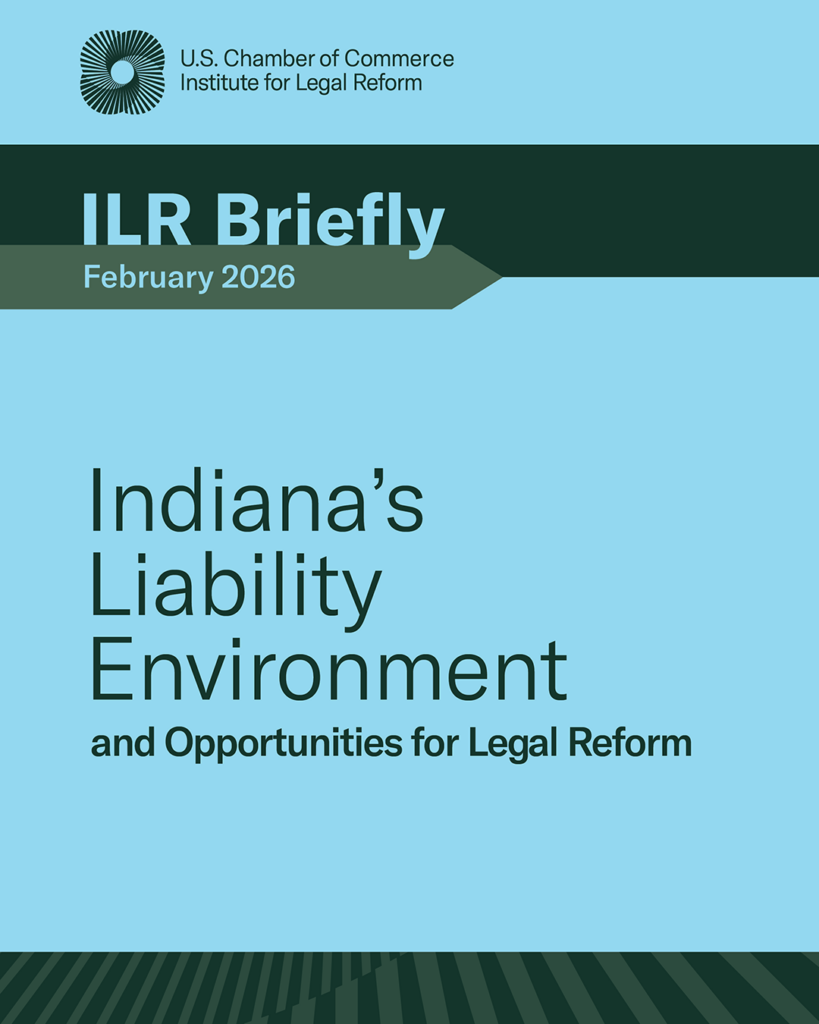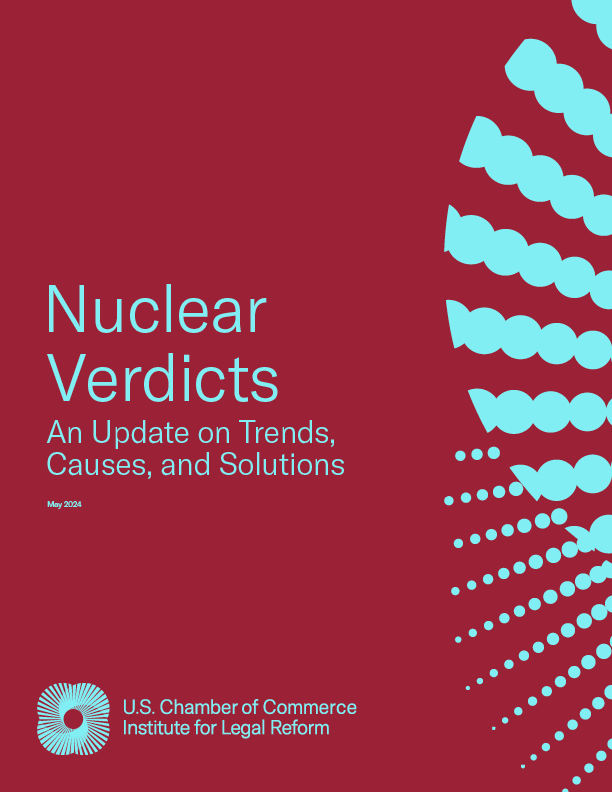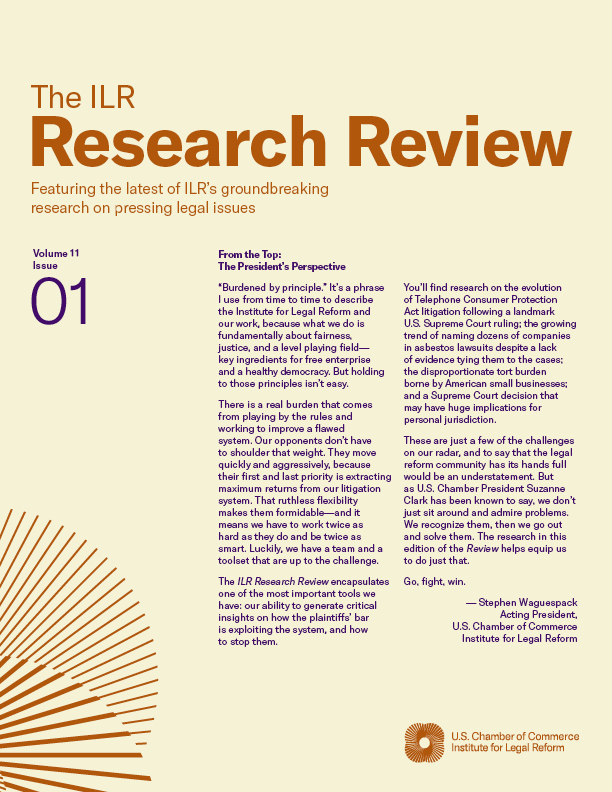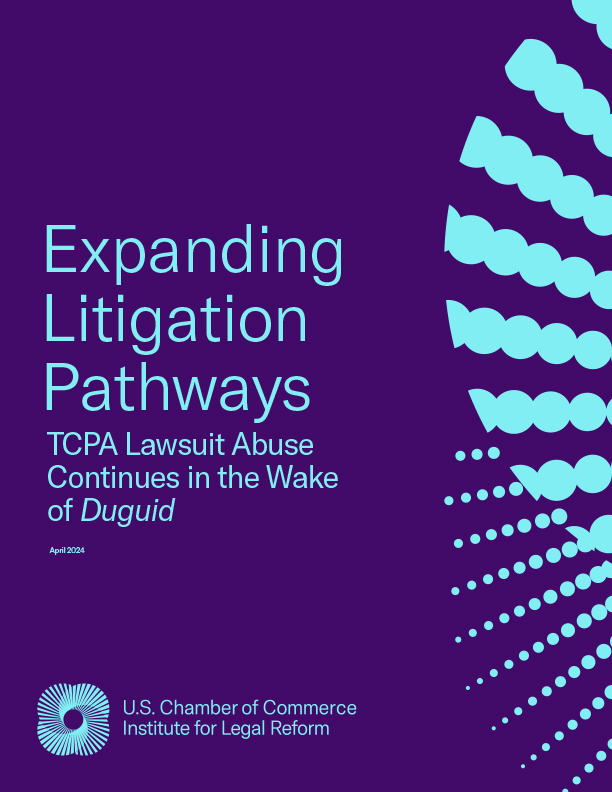The plaintiffs’ bar is suing American companies for communicating with corporate customers under the Telephone Consumer Protection Act (TCPA) as “nonconsensual communications” –the potential impact for uncapped statutory damages is real, alive, and in desperate need of attention.
Under the TCPA, companies that communicate with their customers for any reason (marketing, collections, or transactional) have been discovering in recent years that if they reach out to customers via call, text, or fax, they are at risk for being sued under the Telephone Consumer Protection Act (TCPA) by a plaintiff claiming that the communication was not made with his or her consent. More often than not, that plaintiff claims to represent a nationwide class seeking the $500 or $1500 per communication, which are the damages available under the TCPA.
It is rare these days to see TCPA litigation brought against its original intended target – abusive telemarketers. Instead, essentially every American business, from large to small, now finds itself at risk of having to defend against a TCPA lawsuit alleging statutory damages thousands of times in excess of any conceivable actual “damage” associated with the mere receipt of a phone call (even if a call was not answered, and no voicemail left). The company must then decide whether to pay plaintiffs’ counsel or the complaining individual, or to spend significant money defending an action where the alleged statutory damages may be in the millions or billions of dollars.
The Juggernaut of TCPA Litigation: The Problems with Uncapped Statutory Damages reports on the issues of uncapped statutory damages, over-incentivized plaintiffs, the threat of strict liability to small businesses, and the threat of vicarious liability to larger companies. The report suggests that the TCPA has become a destructive force that threatens companies for technical violations that cause no actual injury or harm to any consumer.
Is the only way to combat the problems associated with TCPA litigation legislative action that sets damages caps for both individual and class actions? What is clear is that the TCPA’s uncapped statutory damages pose a real threat to large and small well-intentioned American companies who need to communicate with their customers.
Businesses are being hounded by TCPA lawsuits and, now that high-profile, multimillion dollar settlements and judgments have raised awareness of the TCPA, the situation will only worsen. Because the original intent of TCPA—claims being brought in small claims courts for small dollar total amounts, without attorneys—has been perverted, the statute needs to be amended to include a damages cap so that it cannot continue to be used to threaten the very existence of well-meaning businesses causing no actual injury or damage to anyone.
View PDF


